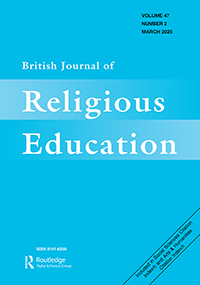Perceptions of, and beliefs about spirituality in Spanish primary and early education teachers
2025
Article

This study explores the perceptions and beliefs of Spanish early childhood and primary education teachers regarding spirituality, its potential bene- fits for children’s development, and its distinction from religiosity. The research aims to investigate teachers’ understanding of spirituality, their attitudes towards promoting it in educational settings, and their views on its cognitive, emotional and relational benefits. A total of 488 teachers from private and state-funded religious schools across Spain participated, providing a diverse sample in terms of age, gender and teaching experi- ence. An ad hoc questionnaire was developed and validated to assess teachers’ perceptions and beliefs, including scales for self-perception of spirituality and perceived need for its development in schools. The results show significant gender differences, with female teachers showing higher levels of spirituality and greater support for its educational importance. Primary teachers scored higher than their early years counterparts in recognising the need for spiritual development. Teachers without leader- ship roles were more supportive of spiritual education. The study also highlights the perceived cognitive, health and relational benefits of spiri- tuality, with most participants distinguishing it from religiosity but acknowledging their interconnectedness. These findings emphasise the need to integrate spirituality into holistic educational frameworks and encourage further research in public school contexts.
Author:
Jorge Burgueño Lópeza
Link:
View online
Digital Object Identifier:
https://doi.org/10.1080/01416200.2025.2492639
